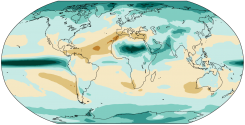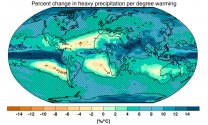Surprisingly even in Jiangnan there is water stress.In the past, the rural poor in China provided the labor pool for China's rapid development, industrialization, and urbanization. They were responsible for building China's cities, infrastructure, and factories, as well as working in the low wage manufacturing jobs that generated the initial capital needed to fuel China's rapid rise. It is imperative that this labor pool does not dry up before sufficient advancements in automation are made that would drastically reduce the amount of unskilled labor required. Otherwise China will be in the same situation as the US, where labor costs are so high that it becomes prohibitively expensive to build anything.
Maximizing consumption, both on a per-capita basis and especially on an aggregate basis should not be the goal. It is not sustainable to promote a massive population consuming as much possible. China's per capita consumption is currently low so there is room for growth, but only up to a certain point. The goal should be a sustainable population with maximal quality of life for all and where you have sufficient human capital to produce/develop everything that is needed. Gradual decline in population over the next few generations would be ideal. The problem with a sharp drop in birthrate is that eventually the proportion of working age people becomes too low, giving rise to the situation where each working couple has to support 4 elderly parents as well as (ideally) 1-2 children. Policy should aim to push birth rate up to around 1.6-1.8 ( and eventually 2.0 once the desirable population level is reached).
The problem is that a lot of the climate change is actually impacting the north. Desertification and water shortage are already significant challenges in North China, so I doubt that North China outside of few select areas in the Northeastern 3 provinces can support any substantial increases in population. The most comfortable and pleasant region to live is by far Jiangsu/Zhejiang. Once you've spent any amount of time in a nice Jiangnan city, you will not want to live anywhere else (in the world). Not only the is the climate ideal, the cities in that region tend to be the best developed, most advanced, cleanest, newest, most modern cities in the world. Even BJ falls far behind cities like Suzhou/Hangzhou/Wuxi/Shanghai.
The population of Mongolia is roughly the same as that of a single district in Beijing.
There's a reason Sichuan and especially Chengdu has had absolutely ridiculous growth rates recently. It has both high population and high water resources per capita.



